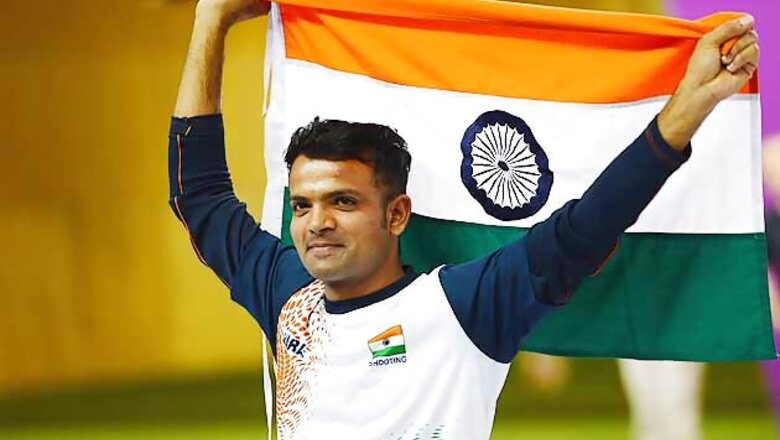
views
There were high hopes from India's 11-member shooting contingent at the Royal Artillery Barracks given that it was their largest pool ever at the Olympics and how they had trained overseas extensively, but a haul of one silver and one bronze was disappointing. Critically, two of their biggest medal hopes lost form when it mattered most. In the end, India's biggest moment came from from the unheralded Vijay Kumar who won silver in the 25m rapid fire pistol event.Gagan Narang shot bronze in the 10m air rifle event even though his performance left much to be desired, a fact which the shooter himself admitted to. Joydeep Karmakar, on his Olympics debut, put in a creditable performance in the 50m rifle prone where he came agonizingly close to winning a bronze.
The rest subsided without much fuss. Heena Sidhu and Annu Raj Singh finished 12th and 23rd in the women's 10m air rifle event and were eliminated. Shagun Chowdhary failed to qualify for the women's trap final, finishing 20th. Manavjit Singh Sandhu failed to qualify in the men's Trap and Narang and Sanjeev Rajput missed out on making the men's 50m rifle three finals. With the latter two’s efforts India's shooting campaign ended on a dismal note.
After a poor start India needed uplifting, and the moment came from Vijay, a 26-year-old competing in his first Olympics. On August 3, Vijay won silver in the 25m rapid fire pistol event and became a celebrity. He started brilliantly with a perfect five, shooting his targets in four seconds in a final in which the reigning world champion Alexei Klimov went medal-less.
It was a momentous achievement for Vijay, who won three gold medals in the 2010 Commonwealth Games and bronze in the Asian Games. In pre-Games talk, the focus had been on Bindra, Narang and Sodhi but along came Vijay to do India proud. Col. Rajyavardhan Singh Rathore, who won a silver medal in the men’s double trap at the 2004 Athens Olympics, was not surprised by the marksman's success.
"Even before the start of Olympics I listed Vijay amongst the four expected medalists. I can understand the media was enamored with a few others and hence Vijay remained under their radar," he told IBNlive. "In fact, on July 12, 2012, a near month prior to the London Games, the chief coach of the Army Marksmanship Unit (where Vijay trains), Col JS Saran, wrote on a price of paper at my house that Vijay's first-day score will be 293/300 (it was 293), second day's score will be 294/300 (it was 292) and he will win a silver medal."
Vijay's achievement is an excellent one indee, but Bindra and Sodhi's failures to qualify in events that have been champions in were disheartening and hinted at a lack of confidence and composure. Bindra, the gold medalist at the Beijing Olympics, had qualified late and the reticent and private person that he is, did not spoken about his preparation. The closest he came to opening up on his mindset ahead of the Games was when he said that for an athlete like him it all boiled down to releasing 60 good shots in qualification and 10 good shots in the final. There were high expectations from the bespectacled 10m air rifle shooter, but he failed to defend his goal as he finished 16th at the end of the qualification round. The defending champion shot a qualification score of 594 and failed to advance into the final of the event. India was gutted.
Sodhi's elimination in the qualifying round of the double trap competition hit harder and left a pall of gloom over India. Just prior to the 2008 Beijing Olympics, Sodhi had broken two world records, but failed to make the cut to the mega event as Rathore was awarded the quota place and was not even awarded a wild card entry. In 2010 he won the world title and in 2011 became the first Indian to defend his title. Along with two silver medals at the 2010 Commonwealth Games and gold at the Guanzhou Asian Games, the burly sardar from Punjab had raised the stakes for himself.
In London, Sodhi started well by claiming top spot on the table thanks to a score of 48 out of a possible 50 in the first round of qualifying, but missed six and eight birds in rounds two and three. It was not what fans and pundits had predicted from the world record holder.
“There are differing reasons for Abhinav and Ronjan. I have always felt that the hunger to achieve gives the extra edge needed to win an Olympic medal,” says Rathore. “There is a vast difference between wanting to win and hungry to win. Perhaps, when attempting a repeat, it's the diminishing hunger that takes away the crucial edge as most other factors are the same for the top 10 shooters at Olympics.
"Ronjan's reasons [for failing] were similar to those shared by most Indian shooters. Ronjan had to remain in peak form all through 2010 and 2011. This was mandated because of the selection policy of the shooting federation. The delayed declaration of the Indian Olympic team too had its ill effects. Potential medal-winners, instead of pacing their form and preparing for the London Olympics, were pushing themselves for their best for the innumerable selection trials. All in all, it was bad planning by the shooting federation," he says.
Rathore agrees that India's shooting tally should have been a lot more. "Given the overall medal tally of India, two medals from a sport seems satisfying to an otherwise starved nation. However, given the support provided, achievements of shooters prior to the London Olympics and their potential comparable to the best in the world, the event of shooting should have fared better in terms of medals. A true-to-potential performance would have been one gold, one silver and two bronze to say the least."










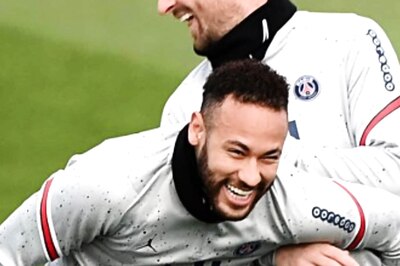

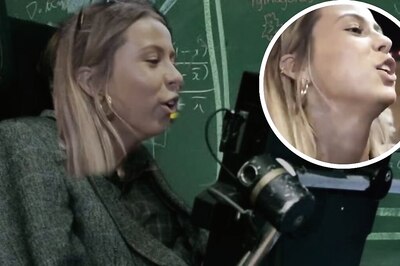


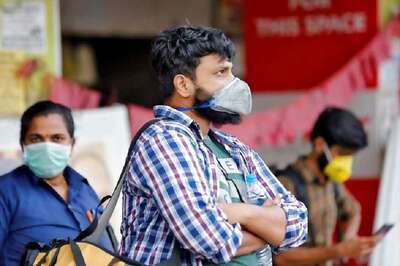


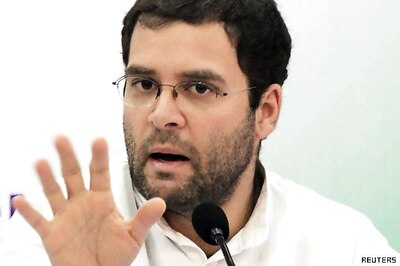
Comments
0 comment